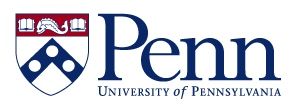Five Lessons from 10 Years of GPLEX
In the sixth installment of the Economy League’s Exchange to Change series, Josh Sevin reflects on five key lessons learned over the last ten years of bringing together our region’s difference-makers at the Leadership Exchange.

Celebrating the 10th anniversary of the Greater Philadelphia Leadership Exchange this year has put us at the Economy League in a reflective mindset. We’ve used this Exchange to Change series to explore some of the ways that GPLEX has contributed to high-impact initiatives and collaborations in our region. And we’ve been thinking about lessons learned from 10 years of bringing together our region’s difference-makers to explore innovative approaches to regional improvement and to connect. Here are five big takeaways that stand out for us from a decade of the Leadership Exchange:
Seeing Is Believing
At the core of the Leadership Exchange experience is introducing cross-sector leaders from our region to best practices and dynamic leaders from other metros. Early on with the Exchange, we started to supplement the traditional conference format of speakers and panels with what we called “regional explorations” – taking an afternoon to get out of the hotel, tour interesting sites and communities, and hear from the people who are doing the work on the ground.
Whether exploring equitable development and sustainability in Oakland, innovation districts in Boston, or a variety of different neighborhoods and issues within our own region, these explorations quickly became a highlight of the Exchange experience. For different learning styles, the ability to “see” and “touch” while meeting people doing innovative regional improvement work has made these explorations among the most highly anticipated and memorable pieces of the annual Exchange.
Good Ideas Are Contagious
In our daily information-overload environment, it can be difficult amidst the noise to create the space for new ideas to inspire and prompt action. By getting Leadership Exchange participants who are committed to learning and connecting out of the office for a couple of days, it has been heartening to see how many good ideas from other metros have taken root and been implemented in our region. There’s at least one presentation each year that really gets people thinking and talking – whether it was Chip Heath’s advice in 2010 to focus on “bright spots,” Carmen Medina’s urging in 2011 to cultivate heretics within your own organization, or Harvard professor Amy Edmundson’s perspectives on teaming last year. Certain ideas and approaches spread like wildfire during each Exchange and become a passionate topic of conversation during and after the event.
And beyond particularly contagious ideas, there are specific best practice efforts and programs that GPLEX participants have replicated in our own backyard around regional collaboration, marketing, and welcoming newcomers, among many others.
We’re Learning to Appreciate What We Have
One of the benefits of travel is gaining new perspectives on home. On the Leadership Exchange, that can mean coming to terms with areas where our region is underperforming and we have clear room for improvement – but it also can highlight the ways in which our region is excelling.
We are struck by the number of times that Exchange participants comment to one another that “we do that just as well as” a region we’ve just learned about. On the first few Exchanges, these admissions were often accompanied by a bit of shock. But as our region and its leaders continue to move away from historic “Negadelphia” tendencies, such statements have taken on a more matter-of-fact tone. That’s in addition to frequent number of times that colleagues from other metros are asking us for our region’s lessons and experiences and telling us that they see our efforts as a best practice.
A Region’s Leadership Culture Can Change
While noticing some important atty-tude adjustments among our region’s leaders over the past decade, we have been struck and heartened by how the other metros that we’ve explored through the Exchange have seen their leadership culture change for the better. Whether it has been Toronto’s dramatic transformation into a global city, San Francisco’s embrace of innovation, or Atlanta’s efforts to become more inclusive, the Exchange has given us perspective on how the broader civic culture shared across business, nonprofit, government, and philanthropic leaders in a region can evolve. We like to think that we’re in the midst of a similar attitude and generational shift within Greater Philadelphia and are exploring that theme during this year’s Exchange.
The Power Is in the Mix
A central premise for launching the Leadership Exchange 10 years ago was that Greater Philadelphia would benefit from more intensive relationship-building among cross-sector leaders who share a passion for our region’s potential. We designed the Exchange to maximize interactions among a diverse group of senior executives who otherwise might not come into contact.
Following the first trip to Chicago in 2005, we have used a competitive application process with diversity goals across sector, geography, race, and gender to select GPLEX participants. This has been with an eye toward ensuring that a growing set of established and emerging leaders have a change to create and strengthen the kinds of relationships that will drive progress in our region. And we’ve seen how new collaborations seeded at the Exchange have resulted in successful advocacy campaigns, development projects, and new programs in our region. The Economy League recognizes that creating a space where Greater Philadelphia’s leaders can establish and strengthen their ties to one another might be GPLEX’s most significant and lasting contribution to our region.
So those are just a few of the standout lessons that we’ve gleaned over the past decade of GPLEX – and we’re looking forward to learning more together on Exchanges to come.
Explore the full Exchange to Change series
Apply for the 2016 Greater Philadelphia Leadership Exchange >>

The Exchange to Change series is made possible through the generous support of the University of Pennsylvania